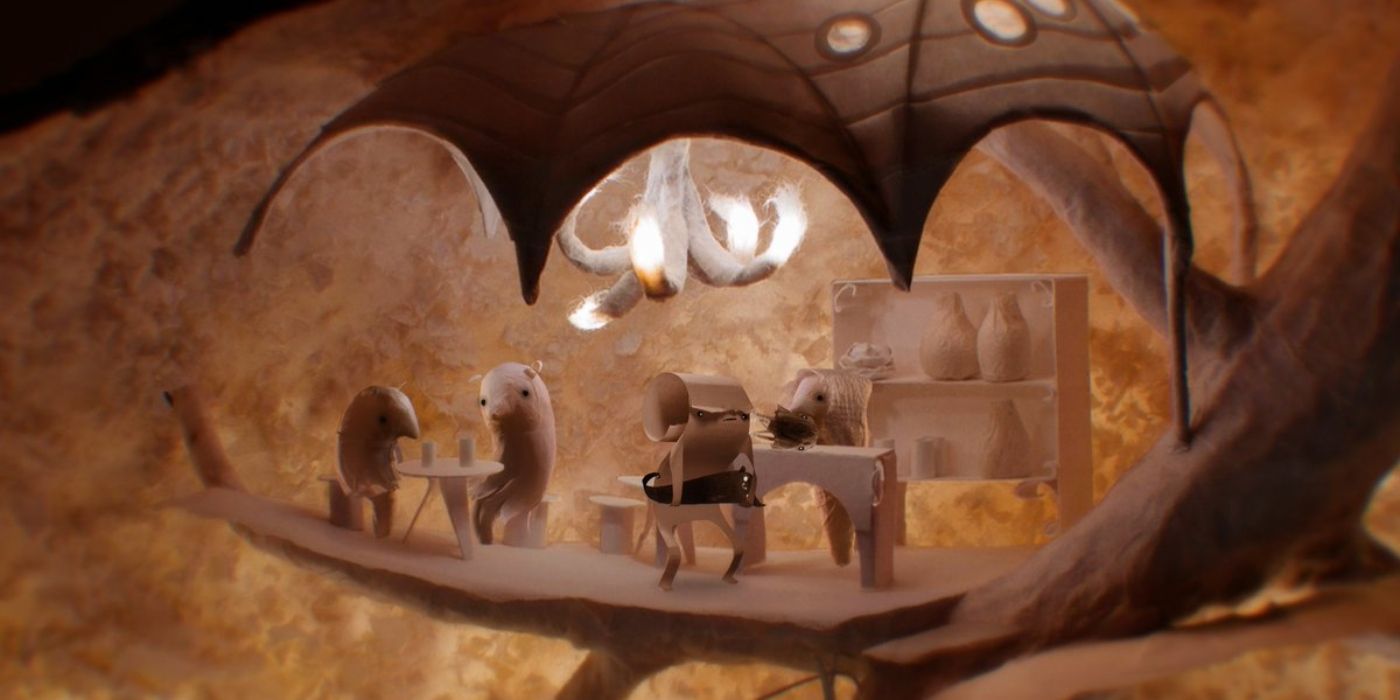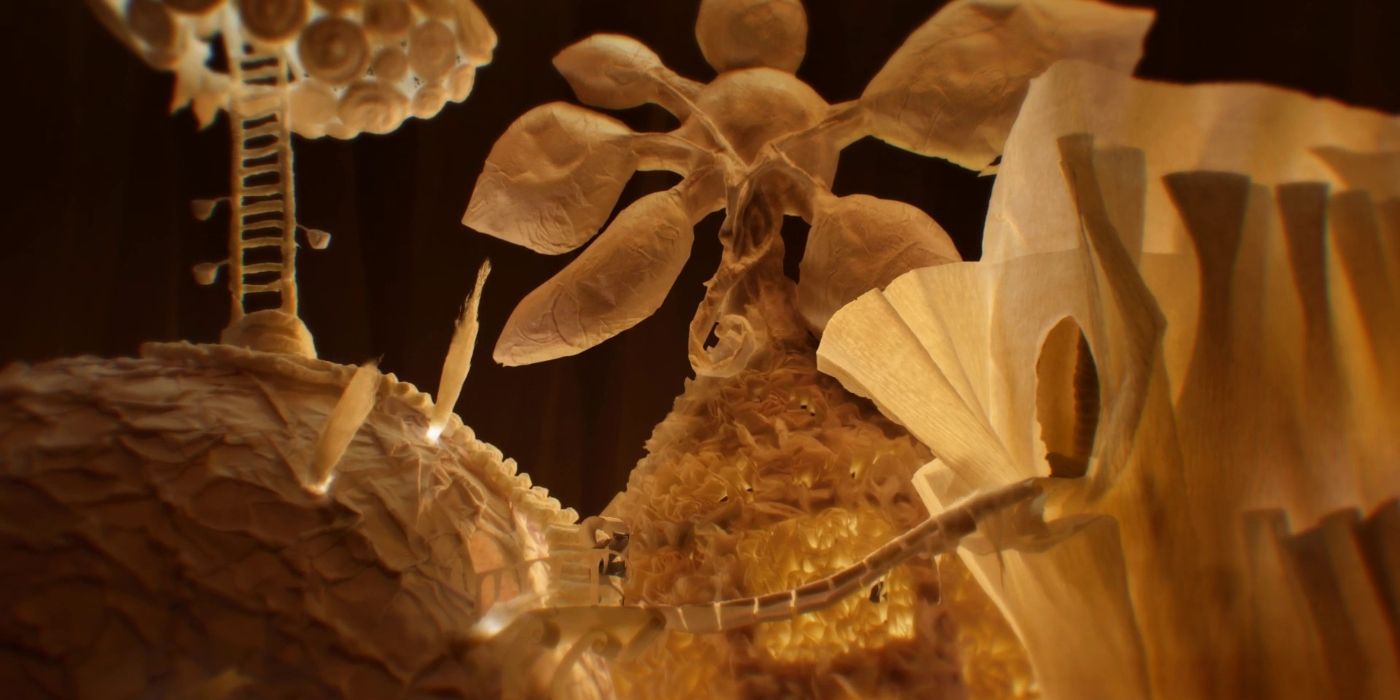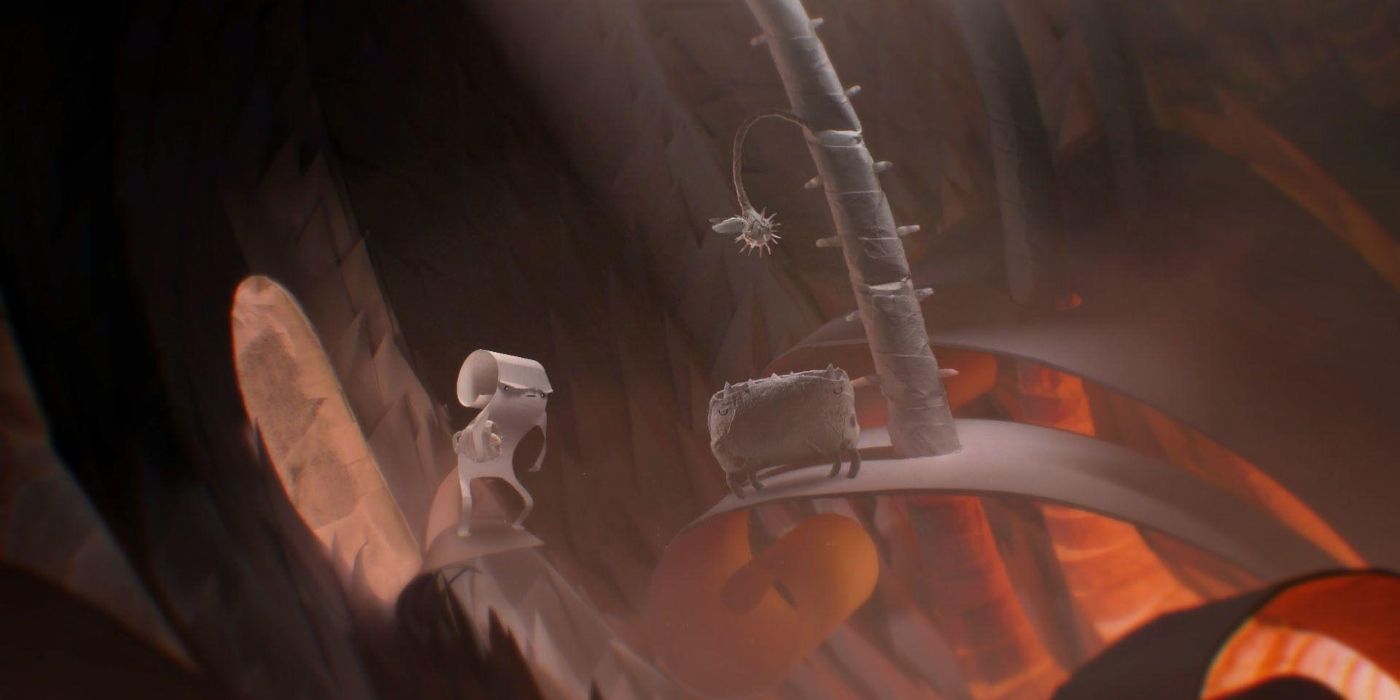
In most video games, dialogue plays an important role in telling a story. Some even give players the freedom to choose what their characters would say that eventually moves the plot forward to the direction they want to. However, some games don't require dialogue to tell a story, which is the case in the handcrafted point-and-click video game, Papetura.
For the uninitiated, Papetura was made by a small studio Petums, whiched created the entire game, apart from the soundtrack and special effects, with just one man. However, one thing players would immediately notice is that Papetura contains no dialogue, and in a recent interview with Game Rant, developer Tomasz Ostafin breaks down his decision to forgo dialogue.
RELATED: Interview: Developer Tako Boy Aims to Subvert Expectation with Card Battler/RPG Cross Blitz

For players unfamiliar with the story of Papetura, the game revolves around the character named Pape, who lives in a flower prison. Upon escaping his captivity, Pape stumbles upon a magical being named Tura that he needs to protect as they face darkness and monsters that threaten to burn down the paper world they live in. What's interesting in Papetura is that everything players see are physical paper sculptures created by Ostafin, which he then transported to the digital realm by learning photography and programming while developing the game.
Although the plot is not the forefront element of Papetura, it still tells an interesting story without any dialogue. Speaking to Game Rant, Ostafin revealed that the decision not to include dialogue is because he wanted to tell the story "without words so that everyone will understand it." Ostafin admitted that he is not a "master of storytelling nor writing," implying that forcing to include dialogue in the game could lead to mistranslations, defeating the message he wanted to impart to players.
While dialogue has become an important part of most video games, Ostafin's decision not to include it actually worked in favor of the game. Anyone who has played Papetura would know that exploration and puzzle-solving are its strongest suit. Having dialogue in the game could potentially distract players from appreciating the vast paper worlds created by Ostafin.

In Papetura, the story is told through the world itself and some strange noises that make for an atmospheric experience that draws players to the environment itself rather than listening to voiceovers or reading text bubbles. Ostafin also mentioned in the interview how Papetura's soundtrack contributed to driving the story forward. The developer recalled how the search for the perfect music that would fit Papetura was no easy task. Ostafin wanted the music to be experimental, similar to the game itself, which is why he decided to enlist the help of a Czech composer named Tomas Dvorak, also known as Floex, to create Papetura's soundtrack and sound designer Juraj Mravec.
For the uninitiated, Floex is known as the composer behind the soundtrack of games such as Machinarium. Ostafin revealed that he is a fan of Floex's musical style, and their collaboration for Papetura has been an unbelievable experience. The developer described the music composed by Floex for Papetura as something that is not typical for an adventure game. Overall, the music greatly contributed to the telling of Papetura's story, and Ostafin even described the game as a long music video. Ostafin believes that Papetura...
"...would be very flat without it, and the atmosphere would be gone."
Additionally, the sound effects created by Juraj perfectly complemented the soundtrack, and Ostafin recalled how the sound effects for Papetura were created as if it was a movie. In the end, while Papetura contains no dialogue, the design of its world, characters, soundtrack, and sound effects became the elements that drove the story forward. Given that the game is heavily focused on exploration and puzzle-solving, having a dialogue could only become an unnecessary distraction that would ruin the overall atmosphere and immersion that Ostafin has envisioned for the handcrafted world of Papetura.
Papetura is out now for PC.
MORE: RuneScape Mobile Interview: Developers Talk Future of the Classic MMO

